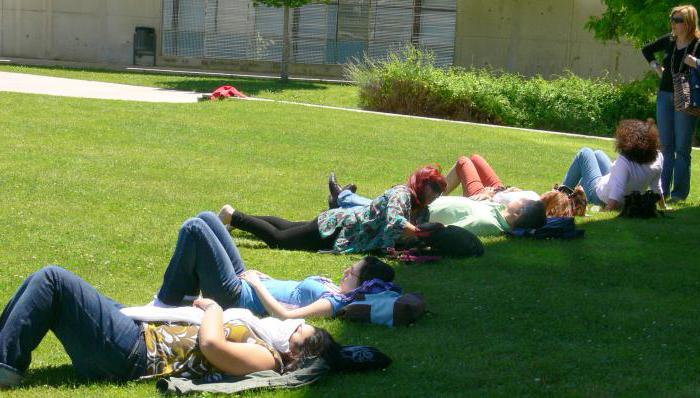Despite the crisis, Spain continues to be considered one of the countries with a fairly high standard of living. By European standards, salaries in the country are not the highest, but life will cost almost 30% cheaper than the average for the European Union. For example, a family of two for a completely comfortable existence will require about 350 euros per month. True, there are also disadvantages: unemployment, difficulties in obtaining a work visa for foreigners, a shadow economy, a thriving bureaucracy, and an inefficient education system.
Highest paid professions
The National Employment Agency (an analogue of the Russian employment service) provides the following data on the highest paid professions:
- highly qualified IT-specialists, programmers, developers on average receive 60 thousand euros per year (five thousand euros per month);
- top managers, heads of firms, energy companies - 4-4.5 thousand;
- lawyers, lawyers, accountants, economists - 2.8-3.25 thousand;
- scientists, technologists, and teachers in higher educational institutions - 2.27-2.75 thousand;
- industrial sector workers - 2 thousand;
- teachers, nurses, ecologists, engineers, sailors of the fishing fleet - 1.5-2 thousand

Moreover, a salary of 1.5-2 thousand euros per month is considered not just good, but prestigious. The salary of a journalist in Spain, for example, is about 2.7 thousand euros, and a good master in repairing equipment in the capital can earn 4 thousand.
Income and employment of the majority of the population
In Spain there is no excitement about getting a higher education. The most popular professions are the seller, gardener, builder, driver, manager, and working specialties. In addition, the Spanish economy is agrarian, so most of the citizens are engaged in agriculture - labor on land is traditionally well paid.
Managers, office workers and logistics can count on 1.5-1.7 thousand euros per month, secretaries and administrators earn 1450 euros, and builders - 800-12000 euros. The Spaniards are allowed to support the family and work in the service sector: maids, cleaners, waiters, sellers and couriers earn 700-1100 euros per month. Plantation workers, movers, sorters, gardeners can count on five hundred to a thousand euros.

Real incomes may differ from official statistics. For example, an experienced plumber, plumber or electrician can earn four thousand euros per month, and the salaries of repairmen for air conditioners, refrigerators, washing machines, computers and other equipment can sometimes reach five to seven thousand. Cashiers in one of the popular supermarket chains after training and length of service for more than three years receive one and a half thousand euros per month.
The average salary in Spain depends on the profession, qualifications and age of the employee. So, people of advanced age before retirement receive much more than young specialists in the same position, and the salary of women is on average 30-40% less than men. The income level also varies by city: residents of Madrid or the Basque Country earn 26-27 thousand euros per year, Catalans - 24 thousand. Relatively small salaries in Extremadura, Galicia, in the Canaries - about 20 thousand euros per year.
Minimum and average salary in Spain
The minimum remuneration in Spain is 764.4 euros per month. For the European Union, these are rather low indicators, but it is precisely such data that the statistics of the international labor organization cite.
For comparison, the minimum salary in Luxembourg is 1923 euros, in France - 1457 euros per month, in Romania and Greece, experiencing far from good times - 218 and 684 euros. In Russia, the minimum remuneration for labor is about 100 euros (7.5 thousand rubles).

The average salary in Spain is 1.8-2.2 thousand euros. The data are very approximate, as many Spaniards work informally, contriving to draw up unemployment benefits as well. The average salary in dollars is 2-2.5 thousand.
About the same level of remuneration is in Cyprus and Italy, the residents of Eastern Europe receive significantly less - their average income is 330-350 euros. Residents of Spain are far from the average level of salaries in Liechtenstein and Monaco - more than 5 thousand and 4.5 thousand euros per month.
Unemployment rate and solutions
It is believed that unemployment primarily affects countries of the “third world,” but this negative phenomenon is also characteristic of some prosperous states that have encountered financial difficulties. The Spanish economy is in a crisis state, and in terms of unemployment, the country occupies one of the highest lines of anti-rating. For the first quarter of 2017, the indicator is 21%. Finding a job for the Spaniards is not so easy, let alone foreigners.
The government is actively solving the problem of job shortages. Foreign enterprises are opening in the country, foreign investment is being attracted to the economy, and employment centers are operating. If you cannot find a job in a specialty, in 3-6 months you can learn a new specialty, which will be more in demand on the labor market. For example, Madrid now requires cooks, confectioners, plumbers and electricians. Education at such courses is paid from the state budget.

Spain tax system
The Spaniards pay a significant portion of income from business, real estate, bank deposits, and shares to the tax inspectorate. Taxes are accrued on a progressive system - the higher the income, the more deductions. It’s unprofitable to make a lot of money in Spain, so many hide income by registering property, capital or business with children, parents and other relatives.
Scholarships, most subsidies, pensions, awards in the field of art and literature are not taxed. The minimum rate of 19% is levied on income of up to 12.45 thousand euros per year, the maximum component of 45%, from 60 thousand euros and above. During the crisis since 2008, Spain’s GDP in aggregate declined by 9%, although this is not typical for countries with a similar tax system.
Social guarantees, medical care and pensions
Despite the difficult situation, sickness benefits, disability benefits, pregnancy benefits, unemployment benefits and pensions in the country continue to be paid in full. True, due to this, the Spanish GDP suffers greatly. The package of social guarantees also includes free medical care and a 10-100% discount (depending on income) for the purchase of medicines.

Elderly Spaniards receive a decent pension. The minimum payments are 636 euros, the maximum pension is 2567. They retire in Spain at 67 years old. For Russians who have been legally working in the country for at least 15 years, upon entering a well-deserved rest, Russian work experience is counted.
Features of labor mentality
Citizens of Spain are good-natured and open, they will never be scorned by foreigners or representatives of working professions, cleaners, migrant workers. Between one and four in Spain, siesta is an afternoon break. At this time, the traffic on the streets freezes, even employees of large firms have a legal right to a long break. In addition, the Spaniards are not punctual. You should not expect that the employer, having made an appointment or deadline, will appear or accept the work on time.

Work for foreign citizens
A high average salary in Spain and a lack of unskilled personnel attract foreigners, but if a person who is not a citizen of the European Union counts on a job, it will be very difficult to find a suitable job. It is easiest to come to work in seasonal jobs, in the agricultural or processing industries, as a cleaner, waiter, taxi driver , a car washer, a tanker, a nanny or a nurse. Spanish employers are hesitant to accept illegal immigrants, so a visa to work in Spain is a prerequisite for employment.
Skilled professionals who are fluent in Spanish can get a prestigious position with a high salary. In Spain, architects, programmers, chemists, agronomists, mechanical engineers, and doctors are required. The salary of a journalist can be 2000 euros, and doctors, depending on the region, receive 4-5 thousand euros.

Work visa
The legal nuances of employing a foreigner in Spain are the responsibility of the employer, who must prove that the foreign citizen has special skills (language or technical, for example) and will be able to carry out the work indicated in the vacancy. The main difficulty in finding employment is the availability of quotas that were introduced to protect the rights of the Spaniards. Quotas regulate the number of vacancies that can be provided to foreigners. Every foreign citizen who wants to get a job in Spain must be registered with the Spanish Ministry of Labor.